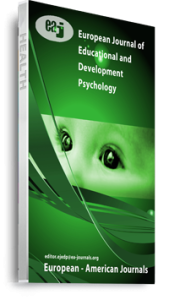Conceptual development in the scientific domain initiates at an early stage, leading to the emergence of “overthinking” in the form of mis- and alternative conceptions. This contribution aims to delve deeper into the origins of scientific misconceptions by examining the parallels found in three other areas of early learning characterised by an overapplication of rules: overextension, overregularisation, and overimitation. One prominent characteristic shared by these is the presence of U-shaped trajectories, indicating an initial simplicity, followed by an overapplication of rules, and eventually leading to a more sophisticated understanding. It is evident that both linguistic and non-linguistic forms of overdevelopment interact and influence each other. Language, specifically the role of dialogue, assumes particular significance in both formal and informal educational settings. Conversations and dialogue, whether in the formal classroom or during everyday interactions, play a crucial role in shaping children’s understanding and facilitating conceptual change. By engaging in meaningful conversations, children can challenge and refine their existing conceptions, allowing for a more accurate and nuanced understanding of scientific principles.
Keywords: overconceptualisation, overextension, overimitation, overregularisation

